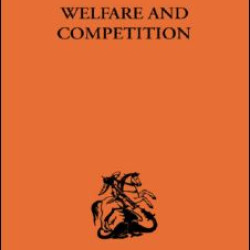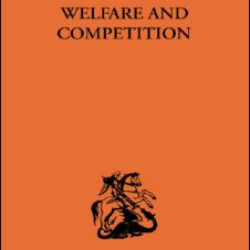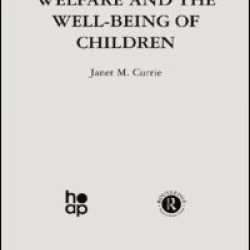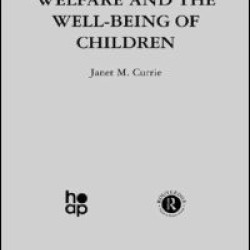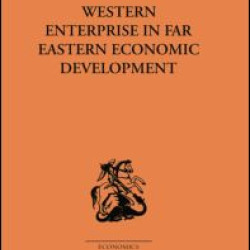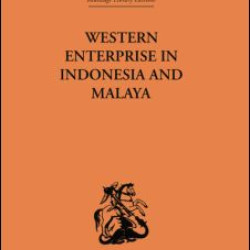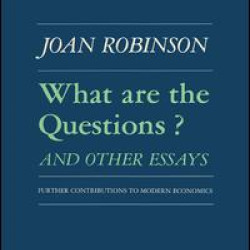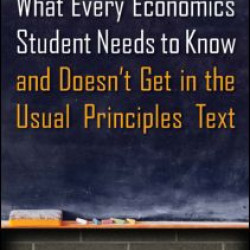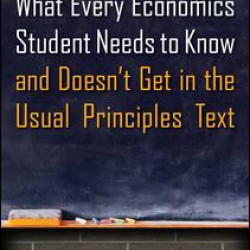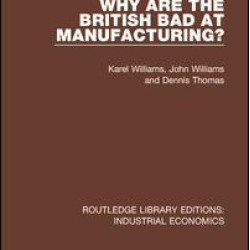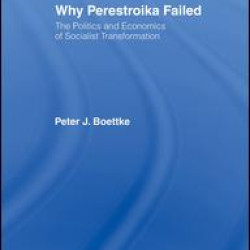Economics
Brand: Taylor & Francis
Model: Stock
Dealing with general economic theory, other than employment theory, the book discusses the theory of pure and monopolistic competition - with a special emphasis upon welfare aspects...
₹2,643.10 ₹3,303.88
Brand: Taylor & Francis
Model: Stock
Dealing with general economic theory, other than employment theory, the book discusses the theory of pure and monopolistic competition - with a special emphasis upon welfare aspects...
₹17,992.79 ₹22,490.99
Brand: Taylor & Francis
Model: Stock
This book examines the major US welfare programs affecting children and presents a systematic evaluation of the evidence regarding the effects of welfare programs on the children themselves...
₹2,643.10 ₹3,303.88
Brand: Taylor & Francis
Model: Stock
This book examines the major US welfare programs affecting children and presents a systematic evaluation of the evidence regarding the effects of welfare programs on the children themselves...
₹15,789.59 ₹19,736.99
Brand: Taylor & Francis
Model: Stock
This book charts the activities of Western firms in China and Japan from the middle of the nineteenth century, when those countries were opened to foreign trade, until recently...
₹2,643.10 ₹3,303.88
Brand: Taylor & Francis
Model: Stock
This book demonstrates exact scholarship (and an) understanding of the way in which business works...(it has) a capacity to reduce a mass of apparently unrelated facts into the neat shape of theory." - The Economist..
₹2,643.10 ₹3,303.88
Brand: Taylor & Francis
Model: Stock
What are the Questions and Other Essays: Further Contributions to Modern Economics..
₹2,496.22 ₹3,120.28
Brand: Taylor & Francis
Model: Stock
This short book explores a core group of 40 topics that tend to go unexplored in an Introductory Economics course. Though not a replacement for an introductory text, the work is intended as a supplement to provoke further thought and discussion by juxtaposing blackboard models of the economy with em..
₹2,569.66 ₹3,212.08
Brand: Taylor & Francis
Model: Stock
This short book explores a core group of 40 topics that tend to go unexplored in an Introductory Economics course. Though not a replacement for an introductory text, the work is intended as a supplement to provoke further thought and discussion by juxtaposing blackboard models of the economy with em..
₹8,445.60 ₹10,557.00
Brand: Taylor & Francis
Model: Stock
This reissue (1983) examines the poor performance of British manufacturing. Rather than invoke orthodox economics or social factors, the book analyses four national conditions – enterprise control over the labour process; market structure / composition of demand; the relation of manufacturing to ban..
₹7,711.20 ₹9,639.00
Brand: Taylor & Francis
Model: Stock
Because the potential returns appear to be greater in poorer countries than in the developed world, modern economic theory implies that rich countries should continually invest in poor countries until returns balance out. But this doesn’t happen – and economist Robert E. Lucas Jr. asked why in his g..
₹1,468.07 ₹1,835.08
Brand: Taylor & Francis
Model: Stock
This argues that Perestroika failed as the result of the lack of understanding of market and political processes with reform processes representing..
₹3,083.74 ₹3,854.68


